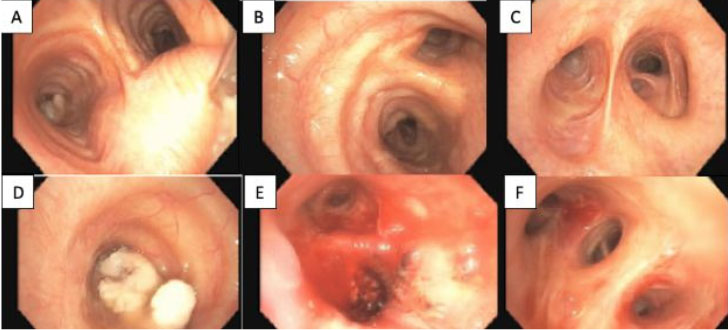 |
Case Report
Unlikely debris in the biliary tree: Metastatic prostate cancer masquerading as a Klatskin tumor
1 MD, Hematology/Oncology Fellow and Clinical Instructor of Medicine, Division of Hematology and Medical Oncology, MD Anderson Cancer Center at Cooper University Health Care, Camden, NJ, USA
2 Medical Student, Cooper Medical School of Rowan University, Camden, NJ, USA
3 DO, MS, Professor of Clinical Radiology, Cooper Medical School of Rowan University, Attending Radiologist, Cooper University Health Care, Camden, NJ, USA
4 MD, Professor of Medicine and Division Head, Division of Hematology and Medical Oncology, MD Anderson Cancer Center at Cooper University Health Care, Camden, NJ, USA
5 MD, Medical Oncology Attending, Division of Hematology and Medical Oncology, MD Anderson Cancer Center at Cooper University Health Care, Camden, NJ, USA
Address correspondence to:
Julia C Shih
MD, 2 Cooper Plaza, 400 Haddon Avenue, Suite 3200, Camden, NJ 08103,
USA
Message to Corresponding Author
Article ID: 100113Z10MB2022
Access full text article on other devices

Access PDF of article on other devices

How to cite this article
Brister MA, Parikh EN, DiMarcangelo MT, Somer RA, Shih JC. Unlikely debris in the biliary tree: Metastatic prostate cancer masquerading as a Klatskin tumor. J Case Rep Images Oncology 2022;8(2):31–36.ABSTRACT
Introduction: Prostate cancer is a common malignancy in the United States and worldwide. Most often patients present with localized disease and are asymptomatic at the time of diagnosis. Rarely, advanced disease is present at the time of initial diagnosis, usually heralded by bone pain, fatigue, or weight loss, but jaundice is typically not a presenting symptom among patients newly diagnosed with metastatic prostate cancer.
Case Report: A 74-year-old male presented with painless jaundice. He had severe hyperbilirubinemia and imaging demonstrated mediastinal and abdominal lymphadenopathy in addition to biliary ductal dilation with an enhancing mass at the confluence of the left and right hepatic ducts. While the presentation and imaging were classic for a newly diagnosed Klatskin tumor, or perihilar cholangiocarcinoma, tissue biopsies from the biliary lesion and mediastinal and gastrohepatic lymph nodes were all consistent with metastatic adenocarcinoma of prostatic origin. Prostate specific antigen was elevated to 205 ng/mL. The patient underwent biliary stenting and subsequently began treatment with androgen-deprivation therapy with marked improvement in serum prostate specific antigen and resolution of hyperbilirubinemia.
Conclusion: We describe a unique case of a patient who presented with painless jaundice and imaging suspicious for a Klatskin-type cholangiocarcinoma. Multiple imaging modalities and repeated biopsies were required to prove this patient actually had metastatic prostate cancer. This case highlights the importance of finalizing an accurate tissue diagnosis prior to initiating management with systemic therapies specific to disease site and biology.
Keywords: Cholangiocarcinoma, Klatskin tumor, Metastatic prostate cancer
SUPPORTING INFORMATION
Author Contributions
Michael A Brister - Substantial contributions to conception and design, Drafting the article, Revising it critically for important intellectual content, Final approval of the version to be published
Eshaan N Parikh - Substantial contributions to conception and design, Drafting the article, Revising it critically for important intellectual content, Final approval of the version to be published
Mark T DiMarcangelo - Substantial contributions to conception and design, Drafting the article, Revising it critically for important intellectual content, Final approval of the version to be published
Robert A Somer - Substantial contributions to conception and design, Revising it critically for important intellectual content, Final approval of the version to be published
Julia C Shih - Substantial contributions to conception and design, Drafting the article, Revising it critically for important intellectual content, Final approval of the version to be published
Guaranter of SubmissionThe corresponding author is the guarantor of submission.
Source of SupportNone
Consent StatementWritten informed consent was obtained from the patient for publication of this article.
Data AvailabilityAll relevant data are within the paper and its Supporting Information files.
Conflict of InterestAuthors declare no conflict of interest.
Copyright© 2022 Michael A Brister et al. This article is distributed under the terms of Creative Commons Attribution License which permits unrestricted use, distribution and reproduction in any medium provided the original author(s) and original publisher are properly credited. Please see the copyright policy on the journal website for more information.





